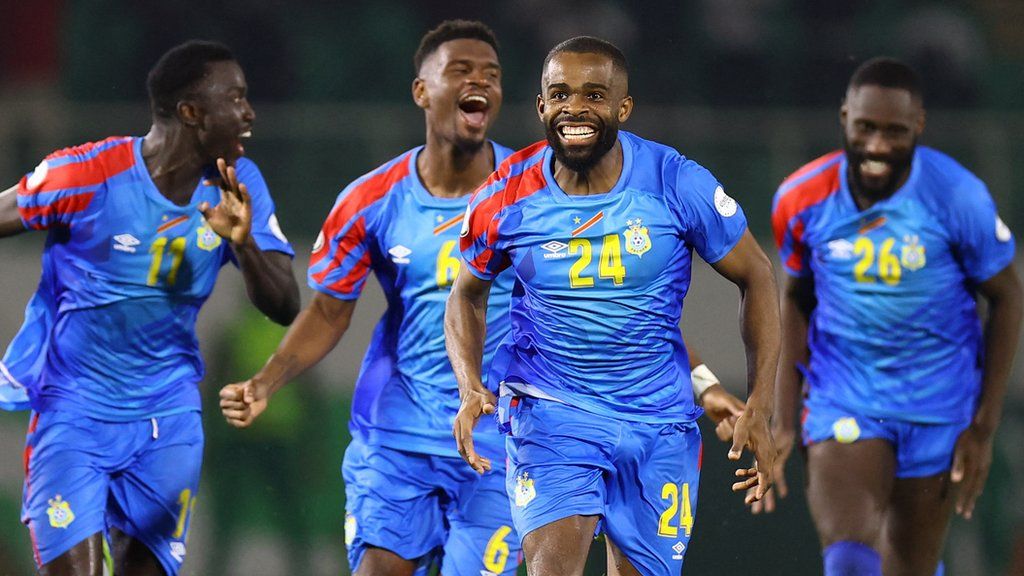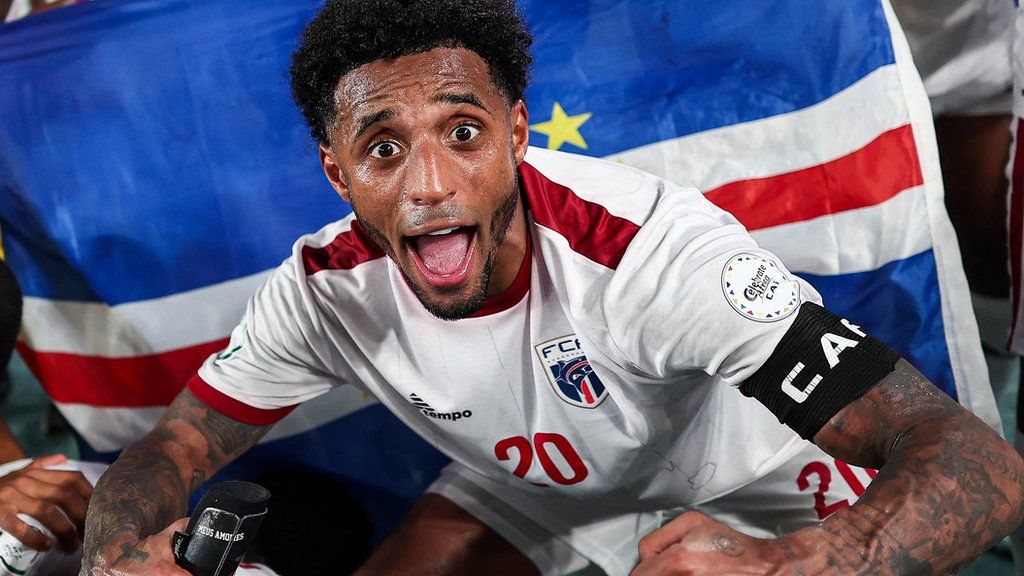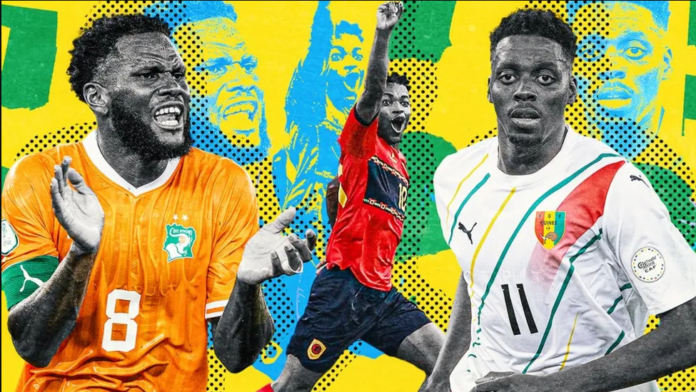Upsets and unpredictability have been the story of the 2023 Africa Cup of Nations, with none of the quarter-finalists from the 2021 edition of the tournament reaching the last eight in Ivory Coast.
Defending champions Senegal, the continent’s top-ranked side Morocco and record seven-time winners Egypt all fell by the wayside in the last 16 against the odds.
Just four countries who have lifted the trophy remain and Angola, Cape Verde, Guinea and Mali are still dreaming of becoming continental champions for the first time.
Three-time winners Nigeria are now the favourites on paper as the highest-ranked country left, at 42nd in the world, but the Super Eagles will be wary of the growing expectation on them as the West Africans seek a first Afcon triumph since 2013.
Hosts Ivory Coast sneaked into the knock-out stages by the smallest of margins yet have renewed belief after beating the holders on penalties under the interim management of Emerse Fae.
Could more shock results be on the cards on the road to the final in Abidjan on 11 February?
“I’m not surprised by anything I’m witnessing,” former Cameroon defender Sebastien Bassong told the BBC’s World Football at Afcon podcast.
“Football is not about who you are. So many teams have been underdogs but played for their lives and outperformed other teams.”
Super Eagles finding their wings
Nigeria had their issues coming into the tournament but have navigated potentially difficult waters as other heavyweights were sunk.
Striker Victor Osimhen has only netted one goal, but the 25-year-old Napoli man has received plaudits for his tireless running and pressing up front which helped set up Ademola Lookman’s opener against Cameroon in the last 16.
The Super Eagles now face their first-ever Afcon meeting with Angola, the lowest-ranked side left at 117th in the world.
Forwards Gelson Dala and Mabululu have impressed for the southern Africans, with four and three goals respectively at the finals, and captain Fredy has pulled the strings in midfield while registering three assists.
“They will be coming out to prove a point and we respect every country,” Super Eagles defender Kenneth Omeruo said. “The idea now is to stick to our game and take it very seriously.”
Both sides have goalkeeping issues ahead of their meeting in Abidjan on Friday (17:00 GMT). The previously under-fire Francis Uzoho is set to replace the injured Stanley Nwabali for Nigeria, while Angola number-one Neblu is suspended.
However, Antonio Dominique, who plays in the third tier in Switzerland, kept a clean sheet after coming off the bench against Namibia on Saturday.
Path ‘opening up’ for Guinea

DR Congo are two-time Afcon champions – even if their first title came in 1968 as Congo-Kinshasa and their second in 1974 as Zaire.
The Leopards have drawn all four of their games in Ivory Coast and goalkeeper Lionel Mpasi was the ultimate hero in the shootout win over Egypt when he converted the decisive penalty.
The Congolese have only found the net three times but have had the most attempts of the eight sides remaining and their expected goals tally of 6.6 is only second to Nigeria’s 7.5.
Their opponents Guinea (Friday, 20:00 GMT) are appearing in their first quarter-final since 2015, with their late victory over Equatorial Guinea the West Africans’ first knock-out win in seven attempts at the finals.
The winners of that tie will meet either Ivory Coast or Mali in the last four next week.
“When you go into a competition it is with the aim of going all the way, even if we have never been lucky enough to get to the semi-finals before,” said Guinea coach Kaba Diawara, the one-time Arsenal striker.
“This time we can see that the path is opening up for us.”
Mohamed Bayo has been the man for the big moments for Syli National, with the much-hyped Serhou Guirassy yet to make a real impact up front.
The 27-year-old has 17 league goals for German club Stuttgart this season but missed Guinea’s first two group games through injury.
Elephants face another West African derby
Hosts Ivory Coast looked on their way out before squeezing through as the last of four best third-placed sides, and retain hope of adding to their continental titles in 1992 and 2015.
Yet their under-par results in the group stage have handed them a trickier path to the final.
The Elephants showed determination to knock out Senegal in the last 16, with former AC Milan and Barcelona midfielder Franck Kessie epitomising their hunger as a second-half substitute, but now face a Mali side which overcame Burkina Faso and are seen as dark horses.
Mali’s best previous Afcon result came when they were runners-up back in 1972, and the Eagles finished third in 2012 and 2013.
Both sides have struggled to convert their chances. Ivory Coast have had 54 efforts in total – two more than their West African neighbours – but the Elephants have only converted 5.6% of their attempts compared to Mali’s 9.6%.
Lassine Sinayoko is top scorer for the Eagles with three goals – as many as the hosts have managed in four outings.
However, Mali have never beaten Ivory Coast in five previous meetings at the finals which include a semi-final in 2012 and a last-16 tie in 2019.
Blue Sharks circle Bafana Bafana

In the final tie (Saturday, 20:00 GMT), Cape Verde are bidding to reach a first-ever semi-final against a South Africa side who upset Morocco and are chasing a first title since 1996.
The well-drilled islanders have played some stunning passing football at times and their eight goals have come from seven different players – with a late penalty from captain Ryan Mendes sealing progress against Mauritania.
The Blue Sharks skipper possesses technical qualities, Jovane Cabral has plenty of trickery on the ball and former Manchester United forward Bebe has long-range free-kicks in his locker.
“We have progressed a lot over the years,” Mendes said. “A semi-final would be something exceptionally historic for our country.”
South Africa lost their opener against Mali but have kept three successive clean sheets since, with the latest of those in their surprise 2-0 triumph over the Atlas Lions.
Midfielder Teboho Mokoena has impressed among their core drawn from Pretoria-based club side Mamelodi Sundowns, while Bafana Bafana coach Hugo Broos can call on the experience of guiding Cameroon to glory in 2017.
“Broos has taken more Sundowns players because he understands those players have experience playing against different opponents from across the continent,” former South Africa midfielder Aaron Mokoena told BBC Sport Africa.
“He realised that the synergy is important.”
Opta’s artificial intelligence prediction model gave Angola and Cape Verde less than a 1% chance of lifting the trophy before the finals began, but if both countries pull off further upsets then they will meet on Wednesday for a place in the final.

